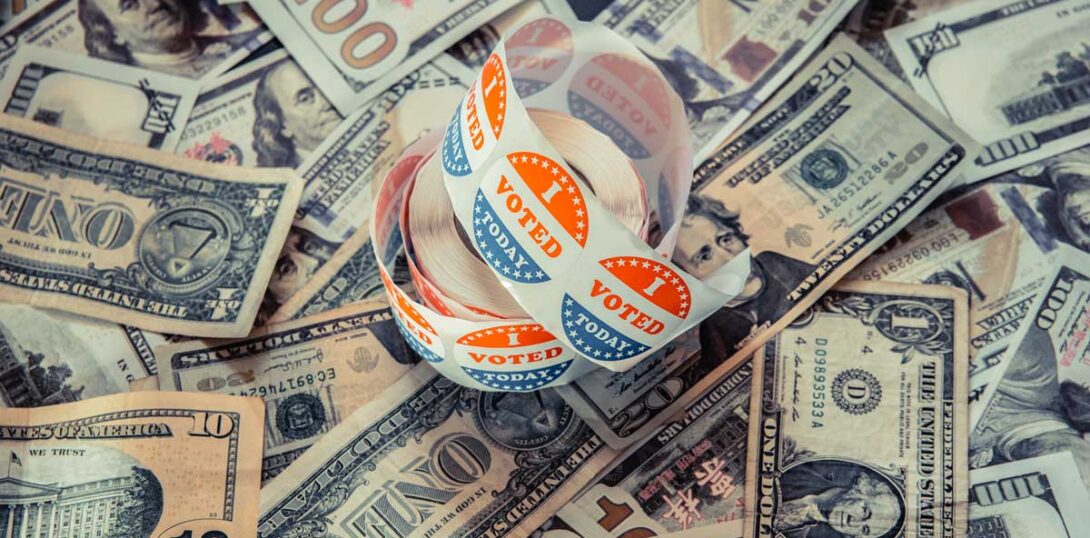How the 2020 Election Could Impact Your Finances
Without a doubt, presidential elections can make an impact on your personal finances.
While a lot of predictions focus on the presidential elections and the stock market, personal finances are broader than just that—only 55% of Americans participate in the stock market.
Your personal financial picture can include not only the stock market, but the overall economy, rate of employment, taxes, health care, and other policies.
So before making hasty decisions or determining your strategy based on which candidate wins, it’s important to first consider how those other individual elements impact your financial health. Some of the most important ones to consider this year are:
Healthcare
There are a few aspects of the healthcare sector that could be impacted.
When it comes to investments, a Biden win could put more regulatory pressure on the industry but would not likely lead to a structural change in the healthcare industry. A Trump win would potentially boost health care stocks as Medicare would likely continue to operate in its current form.
A legal challenge to the Affordable Care Act’s individual mandate provision is currently on the docket for the US Supreme Court session on November 10. This could affect whether or not individuals can acquire insurance, leaving them vulnerable to catastrophic medical costs, which is the number one cause of personal bankruptcy.
Jobs and Wages
The Biden platform for job growth has been recognized by economic research firm Moody’s Analytics has found that Biden’s proposals would lead to 18.6 million new jobs during his first term and increase the average American’s income by $4,800. President Trump’s policies would lead to an increase of 11.2 million new jobs by 2025 with “minimal real income gain for average households.”
Personal Taxes
Candidate Biden has proposed a tax increase in the highest bracket from 37.5% to 39%, impacting families who make more than $400,000 annually. President Trump has not released a detailed platform. He has mentioned pushing for deferred payroll taxes to be forgiven. The Trump administration hinted that the president’s election-year tax plan would include a tax cut for middle-class Americans, although that plan has not yet been revealed.
Childcare
According to Childcare Aware of America’s report, American’s spend $42 billion on early care and education, and households lose $30–35 billion in income due to parents leaving the workforce or reducing their paid work hours to care for children. The average annual cost of care for a 4-year-old in preschool is $9,000.
The Biden platform proposes universal (free) preschool for 3- and 4-year-olds.
The president hasn’t outlined a specific child care proposal. In the past, the president signed into law a block grant that aided 1.3 million low-income families, although his budget had proposed a $95 million cut to the program. Republican administrations tend to favor tax breaks and credits to families vs. universal proposals.
Interest Rates
In response to the pandemic the federal government has unleashed massive amounts of spending to help restore the economy, and the Federal Reserve has pushed money into the economy by lowering interest rates.
Unrelated to the election, the U.S. is facing a pandemic and a recession, and the Fed’s ability to control the federal funds rate was designed for situations like these. It comes as no surprise that the Fed has indicated they will keep rates low long enough for the economy to regain its footing. This may influence mortgage rates, which are likely to remain low for a long time, benefiting homeowners who refinance as well as new homebuyers.
Personal finances are complex, with many moving parts and pieces. Having the right financial advisor on your side can help you avoid impulsive (and costly) mistakes and make the best decisions to protect and build your personal wealth. Aspen Wealth Strategies can offer you the services and peace of mind you’re looking for. Click here to connect with an advisor.
